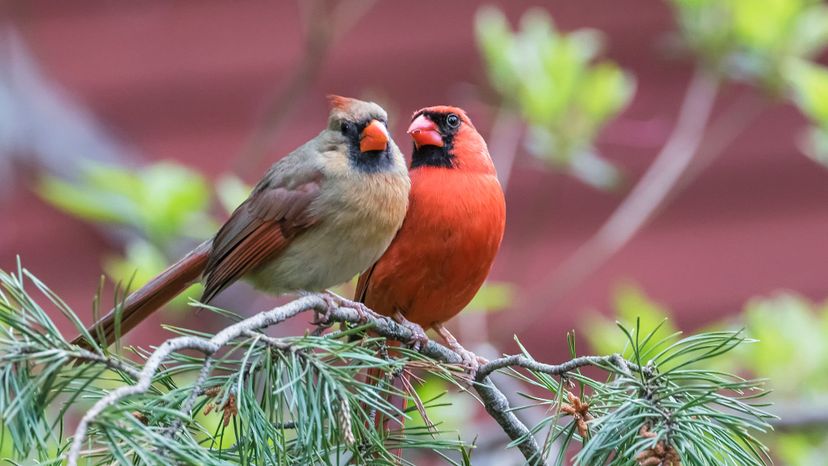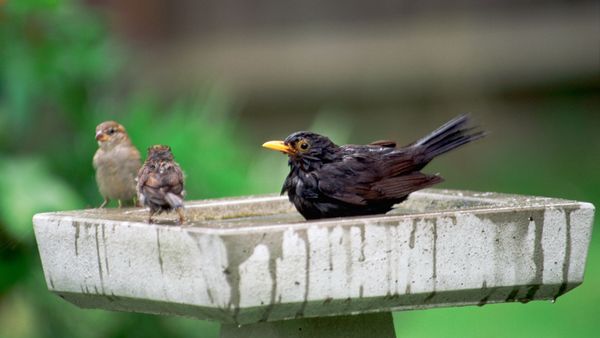
Many bird-watchers (and bird-listeners) believe that a singing bird must be a male bird. But that's not true. And that misconception can have a lot of serious consequences. Two ornithologists (scientists who study birds) recently put out a call to action for scientists and laypeople alike to pay more attention to the singing habits of female birds. The paper was published online on March 14, 2018, in the journal The Auk: Ornithological Advances.
Traditionally, female songbirds have been overlooked because more males sing, says the paper's co-author Lauryn Benedict, a University of Northern Colorado biology professor. But the ratio isn't overwhelmingly in favor of males, as it turns out. "Worldwide, we think that females sing in about two-thirds of all songbird species," she emails. "That's a pretty rough estimate, though, because for the majority of all bird species we don't have enough information to even determine whether females sing. In species where males and females look alike it can be hard to know which sex is doing the singing."
Advertisement
Of the 660 songbird species that feature female song, recordings have been only made for about 200. An additional 3,500 species have yet to be studied to determine whether their ladies sing, or not.
The male/female study disparity may have initially occurred because more research hours are devoted to birds in temperate regions, where females are less likely to sing. "This may be because male and female roles are separated because of the short breeding season: Males show up and sing to attract females and defend territories, whereas females spend more time devoted to building and attending to the nest," explains fellow co-author Karan Odom, a researcher with the Cornell Lab of Ornithology in an email interview. "However, in the tropics we see a very different pattern: Both males and females of many songbird species sing and they do this a large part of the year."
This is an important distinction because most bird species live in the tropics. These tropical birds sometimes keep the same mate and territory for years, so the reasons for singing may be different than those of their temperate relatives.
And why do female birds sing? "Based on what we do know, female birds sing for similar reasons to males (in one species, females are known to attract mates with their songs, and in other species, females appear to use songs to defend territories). However, females may also sing for broader reasons, such as to defend resources year-round, possibly for herself or her offspring," says Odom. She notes that, compared to male birdsong, we know very little about female birdsong, which is why more studies are needed.
"Many people assume that every singing bird is a male, and that's just not true. Because of that bias we're missing out on a lot of really interesting information about bird behavior and communication," Benedict says, adding that previous studies of birdsong have shone serious light on how brains control communication behaviors. "Birdsong is a learned complex signaling system that has many parallels with human language. So far, we've answered fascinating questions about how male brains help them to communicate, but I think the same questions should be asked about females."
The researchers also note that better understanding of female songbird habits will demystify how behaviors evolve over time in relation to mating behavior and habitat. Knowing the differences between male and female song can help with estimating bird population sizes. It's also critical for the worldwide conservation effort. "Having good documentation of female song will give us powerful tools for helping to protect wild bird populations. If we can track male and female behavior by listening to the songs of both sexes we'll learn a lot more than if we only listen to males," Benedict says.
Advertisement

